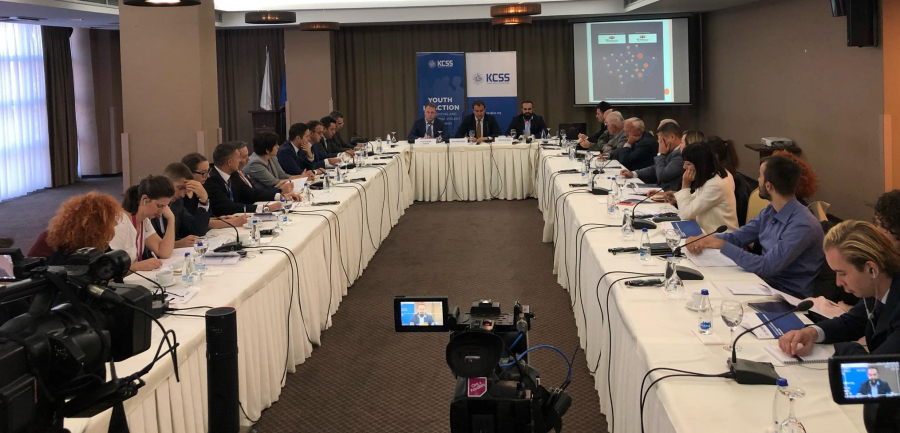17/10/2018

Kosovar Centre for Security Studies (KCSS) today, on 17 of October 2018, has published the new research report "Beyond the Triggers: New threats of violent extremism in Kosovo" in the framework of Countering Violent Extremism program, supported by the Embassy of the Kingdom of Netherlands.
This report states that the loss of territory held by ISIS and other terrorist organizations has created new threats and challenges for security in Europe, including the Western Balkans and Kosovo. Since 2012, about 403 people have traveled from Kosovo to the conflicts in Syria and Iraq as members of terrorist organizations. Of this total, 255 are men, known as foreign fighters, while the rest are women and children. Based on data from the state authorities, around 40 children were born in Syria and Iraq with at least one parent from Kosovo. About 135 individuals have returned to Kosovo and are undergoing legal proceedings, while 190 remain in the territory of IS. While the flow of foreign terrorist fighters from Kosovo, as well as their trip to Syria has dropped since 2015, the threat of violent extremism has shifted to instances of domestic terrorism in Kosovo.
However, since 2016, no case has been reported of Kosovo citizens who have traveled to Syria and Iraq. The threat of homegrown terrorism and continues radicalization comes from several directions. Violent extremist ideologies are still very much evident among families of foreign fighters from Kosovo, especially those who follow conservative teachings. These families are hesitant to accept any support from state authorities. Another layer of the challenge is found in the Kosovo diaspora. About 20 percent of the foreign fighters from Kosovo, are born and grew up as a second or third-generation immigrant in the European countries. Most of foreign fighters from diaspora are not seen to have relation with Kosovo, but there is an indication that some of them have influence and their presence in Kosovo and potentially they can recruit other family members. Around 143 family members from Kosovo have traveled to Syria and Iraq.
In most cases their travel was initiated by a senior member of the family. After the establishment of the so-called 'Caliphate' about 108 FTF families from Kosovo have traveled to Syria a timeframe that overlaps with IS’ economic, financial and military peak. Gender power relations in Kosovo, a largely patriarchal society, were decisive in moving family members into IS war. In most cases, women and children were pressured by a family member (father or husband) to travel to IS- held territory.